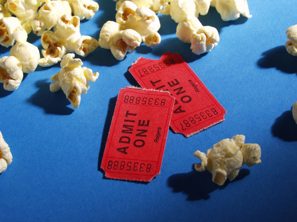 Have you seen any good movies lately? If not, try one of these 10 best positive psychology films of 2010.
Have you seen any good movies lately? If not, try one of these 10 best positive psychology films of 2010.
Whether or not they are snubbed by the actual Academy Awards ceremony, these films merit awards for their specific positive psychology viewpoint and each movie is worthy of your time.
For the second year in a row, I present the positive psychology movie awards for films that best illustrate positive psychological principles:
Oscar for Best Positive Psychology Film: Alice in Wonderland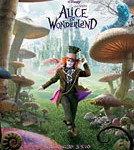
The film explores and teaches positive identity formation, character transformation, character redemption, and goal-setting & attainment, while providing deep viewer engagement. Also, a close look reveals that Alice is teaching the viewer about empirically-validated interventions for working with character strengths. The viewer learns to practice divergent thinking to boost creativity, to develop active curiosity, and to find ways to boost bravery/courage by discovering one’s “muchness.” [See article footnotes here] (trailer)
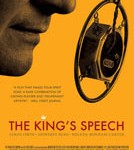 Oscar for Coaching/Counseling: The King’s Speech
Oscar for Coaching/Counseling: The King’s Speech
While Geoffrey Rush’s character, Lionel, is neither a counselor nor a coach per se, this is merely a technicality, as he beautifully personifies the support and solution-focused mentality of a coach and the artful blend of direct challenge, empathy, and intervention of a psychologist. During the climactic speech of the king, Lionel’s unwavering attunement to the anxious king is the type of attention and care any client would dream for in a practitioner. (trailer)
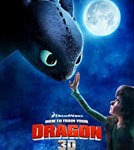 Oscar for Friendship: How to Train Your Dragon
Oscar for Friendship: How to Train Your Dragon
While there may be underlying metaphors about taming and showing compassion for one’s own inner dragon or shadow side, the bond of friendship that develops between a young Viking and an elusive dragon claims the spotlight in this beautiful tale of teamwork and bonding. (trailer)
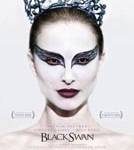 Oscar for Imbalance of Character Strengths: Black Swan
Oscar for Imbalance of Character Strengths: Black Swan
Sometimes our best teachers are situations in which we use too much or too little of our best capacities. Natalie Portman’s brilliant and raw portrayal of a competitive and troubled ballet dancer depicts an overuse of perseverance and self-regulation and underuse of judgment and perspective to create an imbalance that leads to her downfall. (trailer)
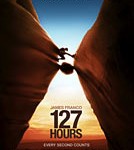
Oscar for Resiliency: 127 Hours
When most individuals would have folded after a couple days of being trapped by a boulder away from civilization, Aron Ralston pushed forward. He perseveres over every painful emotion a human being can have, not to mention significant mental obstacles and unthinkable physical pain that he must self-inflict in order to survive. (trailer)
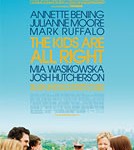
Oscar for Positive Relationships: The Kids are All Right
A close-knit, lesbian family is challenged when the mothers’ sperm donor shows up to visit his biological son. The film is honest, realistic, and engaging in its character interactions, portrayals of positive and negative emotions expressed, and is strong in portraying the importance of forgiveness, open communication, and family solidarity during tough times. (trailer)
 Oscar for Authentic Happiness Theory: Eat, Pray, Love
Oscar for Authentic Happiness Theory: Eat, Pray, Love
It has been said that “the full life” is a life of pleasure, engagement, and meaning. Following a painful divorce, a woman goes on a journey of self-discovery and learns important life lessons – she discovers the gift of pleasure (savoring food, expressing positive emotions and gratitude) in Italy, finds meaning (through meditation, prayer and deep conversation) in India, and realizes engagement (a loving relationship) in Bali. (trailer)
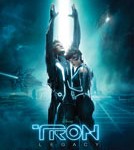 Oscar for Mindfulness: Tron: Legacy
Oscar for Mindfulness: Tron: Legacy
Spiritual themes, religious symbology, an emphasis on humility, stillness, and selflessness, and portrayals of the protagonist using meditation to deal with problems indicate that this is more than your typical action film. At one point the protagonist refers to meditation as “knocking on the sky.” (trailer)
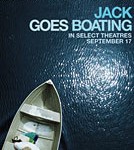
Oscar for Positive Intervention: Jack Goes Boating
An isolated and socially awkward limo driver is taught to use a visualization strategy in order to reach his goal of learning to swim. The approach taught to him is so methodical that he is able to apply this strategy to other areas of his life – the virtue of a great intervention. (trailer)
 Oscar for Integration of Different Types of Strengths: Temple Grandin
Oscar for Integration of Different Types of Strengths: Temple Grandin
Based on the real life of the famous professor with autism who revolutionized the cattle industry, Temple employs unique talents for spatial, mathematical, and visualization abilities, skills in building and construction, and resources in jobs working with animals and in people who support her. However, it is her core character strengths of creativity, perseverance, and kindness (to animals) that operationalize and maximize her talents, skills, and resources. (trailer)
Honorable Mentions
Noteworthy honorable Mentions include: Inception (for love and creativity); Please Give (for the multidimensional nature of kindness); The Social Network and The Infidel (for identity and what it means to be human — the interplay of both human imperfection and virtue); True Grit and Winter’s Bone (for extraordinary adolescent perseverance); Toy Story 3 (for teamwork); Extraordinary Measures (for fairness); The Fighter (for perseverance); and The Book of Eli (for religiousness/spirituality).
_______________________
Ryan Niemiec, Psy.D., is a licensed psychologist, coach, and Education Director of the VIA Institute on Character. He is co-author of Positive Psychology at the Movies and Movies And Mental Illness. This article was originally published in PositivePsychologyNews.com on February 24, 2011



















